What is Technical SEO, and why is it important? -Packted
Suppose you have a shop and you sell groceries.
Now, you have everything in stock. Everything is ready, and you start selling groceries.
But there’s a problem.
The roof of your shop leaks, there are cracks on the walls, and the paint is worn out. Your shop is not in a good condition.
But you have all the stock to sell.
And yet your shop is not doing well in the market.
Why?
Because even though you have everything you need to run the store, the “technical” aspect of your store is not in good condition.
So what did you do after you got to know the reason for no sales?
Simple, you get everything repaired, like leaking walls, put on some good quality paint, and now your store is the one everyone likes to buy groceries from.
So what was this?
This is technical SEO, which is explained from a different angle.
Some marketers say that technical SEO is only for big websites that have more than 10,000 pages.
But if you ask me, not every website has more than 10 pages or 20 pages, or 100 at max.
So this is not for small websites?
If you care about user experience, site speed, 404 pages, 301 redirects, SSL, and more then you should definitely invest your time and resources here.
Now we should move to the actual definition, shall we?
Technical SEO Definition
It doesn’t matter whether you write the best content on your website or not… what matters the most is, whether this content is crawlable by Google or not?
In the words of Google itself, “Crawling is the process by which Googlebot visits new and updated pages to be added to the Google index.”
So Crawling is the first thing Google does to find new or updated pages.
So then what is technical SEO?
Well, technical SEO is the process of optimizing your website’s technical parts, like crawling, page speed, and more to increase rankings for your website in search.
Technically, Technical SEO should be considered as a part of On-Page SEO, because if you see, we are making efforts on our website, not on someone else’s. (like creating backlinks)
What is the Need for Technical SEO?
If your website is not technically good, how can you think it will rank #1 on Google?
There is a need for technical SEO as it makes it very easy for Google to rank your content when your website has no technical issues.
To rank on top of SERP, you should ensure:
- You are using a reliable web hosting
- Google can crawl your website
- Google can index your website
- Your website is fast
- The connection to your site is secured
- There are sitemaps and Robots.txt files on your website
- Your website is mobile-friendly
- Your website don’t have duplicate content
- Your website has structured data
Components of Technical SEO
There are several components of technical SEO, some of them are:
- Website Speed: This is probably the most important factor for any website. Website speed, site speed, or page speed is the total time that a page takes to load.
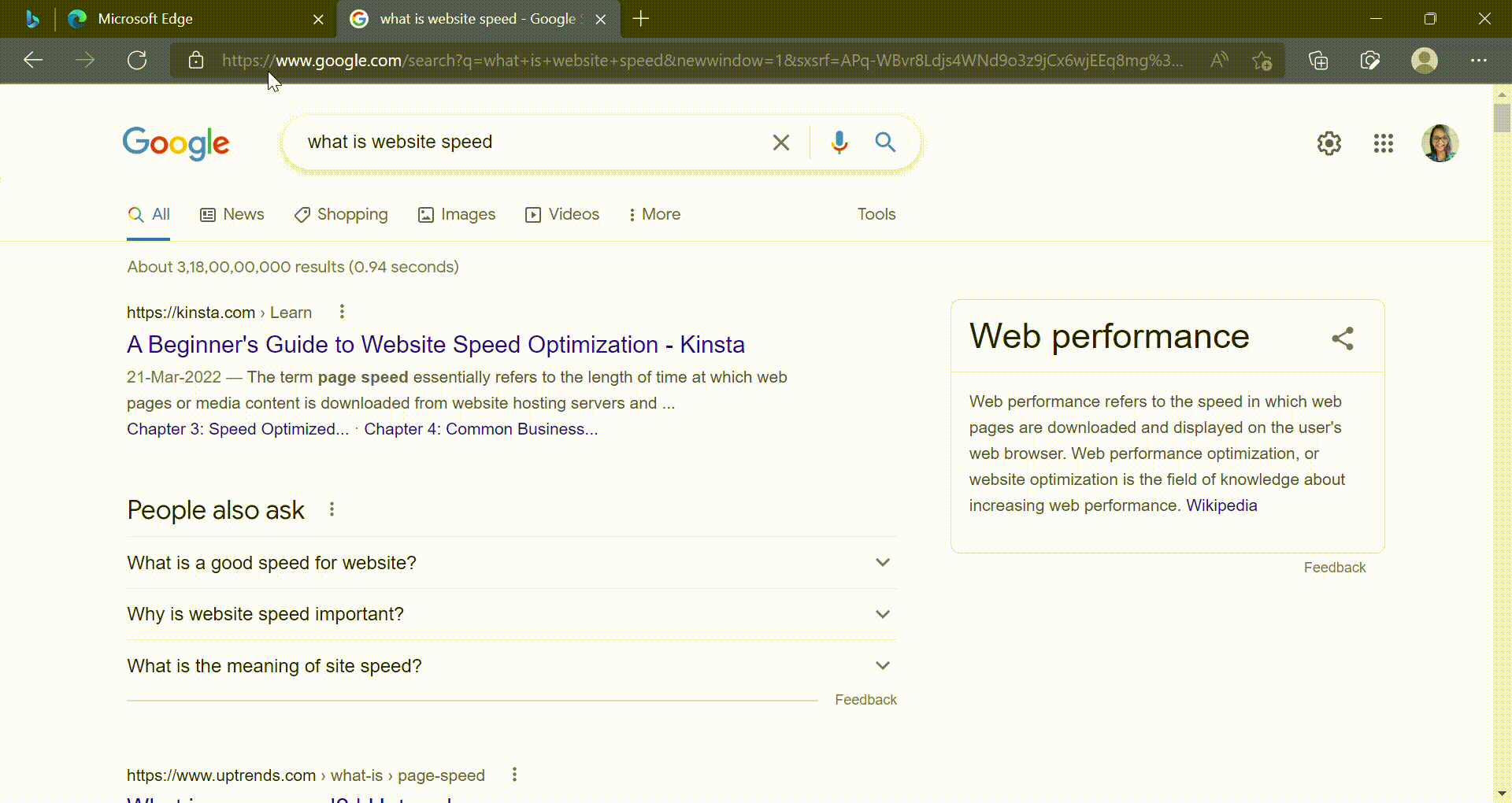
The page loading time can be influenced by:
- Your internet connection
- Website’s hosting
- Website’s server
- Size of images
- File size
- Plugins (Yes, they can influence site speed)
Page speed is measured by three things:
- FCP (First Contentful Paint)
- CLS (Cumulative Layout Shift), and
- FID (First Input Delay)
Page speed is a wide topic, and we shall discuss it in later posts.
- Crawlability: Google and other search engines like Bing, and Yahoo needs to see (or crawl) your site in order to rank it on SERPs.
This is the very first step towards getting your website rank.
If your site is not being able to crawl by Google (or Googlebot), then these can be the reasons:
- The page is blocked in the robots.txt file
- Your page doesn’t exist (404 error) or has moved permanently (301 error)
- Your page has a meta robots tag
- Responsive design: According to Google, “Responsive web design is a setup where the server always sends the same HTML code to all devices and CSS is used to alter the rendering of the page on the device.”
In simple words, a responsive website adjusts itself to every screen size, like mobile, tablet, or desktop.
Responsive design is important because your user will become frustrated and leave your site if you don’t have the responsive design implemented on your website.
- Mobile-friendliness: More than 63% of searches happen on mobile. And it becomes extremely important to optimize your website for mobile.
Responsive web design is one way you can implement mobile-friendliness.
- Sitemap: Sitemap is a file that tells Google about your pages, so that it becomes easy for search engines to find, crawl, index, and rank your pages.
A sitemap can also include video, images, and news.
It’s not necessary that only big websites need a sitemap, it is useful for small websites too. It’s because sitemap helps Google to find your website easily. (Especially for new websites)
- Robots.txt: It’s a file that tells bots (Googlebot, Bingbot, and more) what pages are NOT to access.
A robot.txt page looks like this:
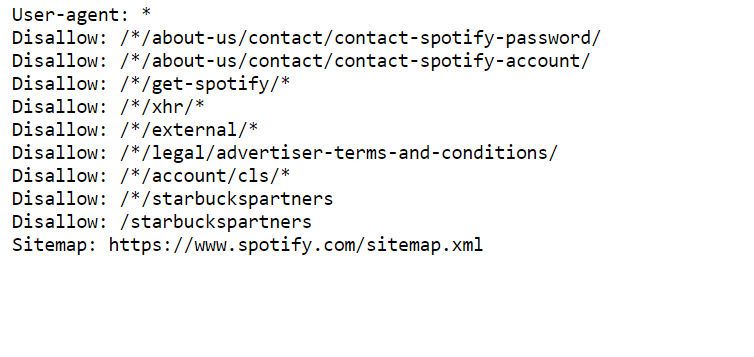
This is robots.txt of Spotify.
You should note that those pages that are blocked by robots.txt will show up in the results.
It will show “No information is available for this page”. But if you want to keep any page away from google, you can either noindex it or password protect it.
- SSL: The HTTPS you see on any page or this little lock comes from an SSL certificate.
![]()
And this is the actual certificate:
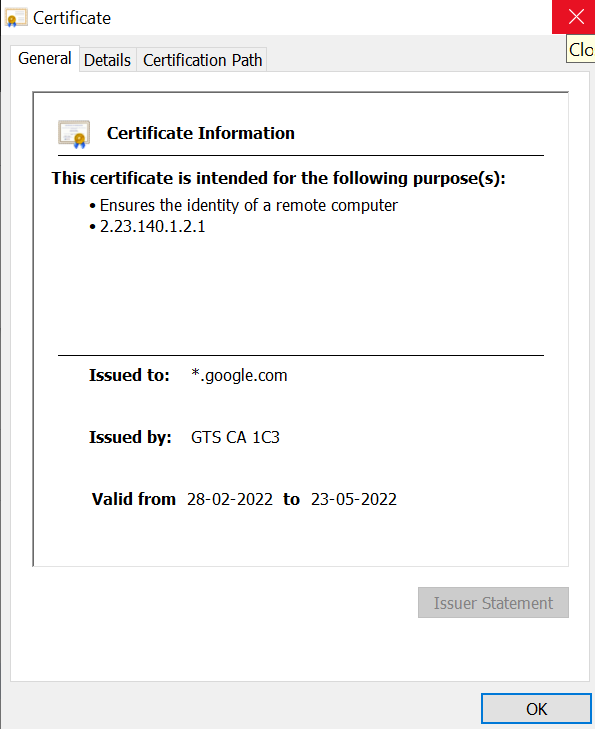
- Robots meta tag: Meta robots or robots meta tag is placed in the <HEAD> section of an HTML page and it basically tells the crawler what to index or not.
A meta robots tag looks something like this:
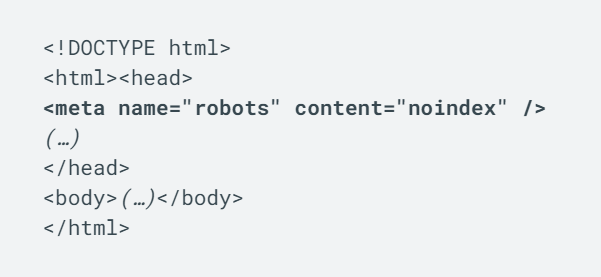
- 404 pages: 404 pages are those which are not on the website. Like suppose you search:
https://packted.com/characters
And when you search it, my site will say to you this:

But that’s not the point of discussing 404 pages.
These pages are discussed when you link something inside your content and then you click on it and you see a 404 error.
For example, I went to this beautiful amusement park, which you should check out too!
When you click on “amusement park”, you will be taken to a page that doesn’t exist. That’s what a 404 error is.
And this is something Technical SEOs need to fix.
- Duplicate content: In the words of Google, “Duplicate content generally refers to substantive blocks of content within or across domains that either completely match other content in the same language or are appreciably similar.”
- Structured data: Structured data helps to understand more about a page, and can give you rich snippets if you implement them properly.
- Hreflang: If your audience is located in different regions like France, Germany, Japan, and more, you can show them content in their language. And you should inform Google too about it.
That’s what Hreflang is, showing a localized version of the page in different regions.
- URL structure: You should phrase your URLs in such a way that Google and your users can understand them properly.
For example, don’t use URLs like:
https://www.example.com/index.php?id_sezione=360&sid=3a5eb
You should use URLs like:
And you should punctuate if there are words between the URL:
https://packted.com/technical-seo-importance/
And not like this:
Example of Technical SEO
A great example of technical SEO would be adding structured data to your website.
Structured data provides additional information about a page, and it is generally implemented using markup.
You can implement structured data through JSON-LD, Microdata, and RDFa. But Google recommends JSON-LD.
Google shows this example of a recipe whose structured data is written using JSON-LD

This is another example of structured data:

Another example of technical SEO has to be sitemaps.

This is a sitemap from apple’s website.
Various plugins can make sitemaps for you, like RankMath, Yoast, etc.
And you can also make them on your own.
Like here, I have generated my sitemap using RankMath’s plugin.
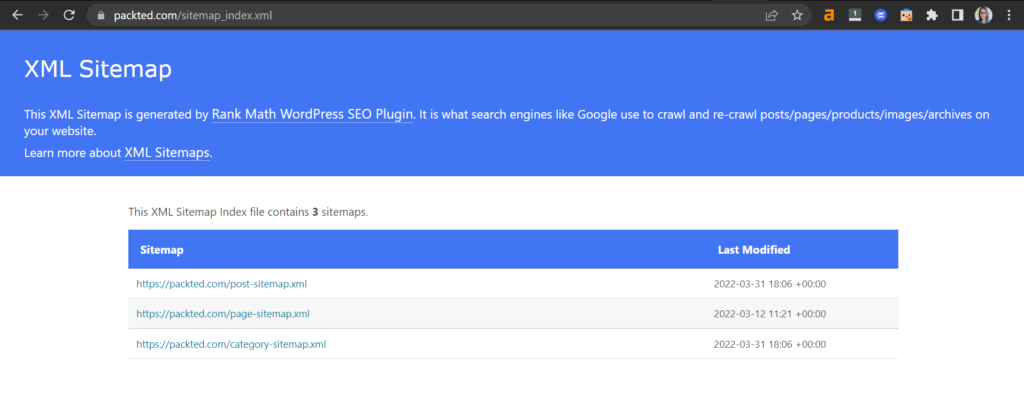
What is the Importance of Technical SEO?
All SEOs understand the importance of On-Page SEO and Off-Page SEO, but if your website has not even been crawled by Google, then what’s the use of doing on-page and off-page SEO?
See, if you focus on the technical side of the website, then users will have a better user experience, Google can crawl your site better, it can index and rank it better, and you will have a constant stream of traffic coming your way.
Technical SEO has importance because it ensures that your site is loading fast, is understandable by Google, and is free from any type of technical issues.
If Google is seeing that your site has no technical issues, is fast and responsive, and solves user queries… it will have no choice but to put your site on the top of the result page.
What are the Benefits of Technical SEO?
The first and most important benefit of doing technical SEO is that you can have access to tons of traffic.
And who knows, this traffic can even become your customer.
Some of the benefits of Technical SEO are:
- Your reach is expanded across all the channels: If you are ranking well in Google, then chances are that you will have some estate on Bing as well because both search engines have some common ranking factors.
This can be extremely helpful because you are now getting traffic from other search engines as well when you only optimized your site for Google SEO.
- You can see an increment in search Engine ranking: If Google can understand your site well and its content, and your site has no technical issues, then you can rank higher in SERPs.
You can possibly rank higher in results if you have no technical errors on your website.
- You can even get rich snippets in search results: When you implement structured data on your website correctly, there are chances that you may get a rich snippet in search results.
Notice that I have said that Google may give you a rich snippet in results. That’s why because even though your page is tested okay for rich results, it’s not necessary that every time you will get one.
- You can get #0 results: This is a dream of every SEO, to get position zero results like featured snippets, and more. By fixing technical SEO issues, you can get access to all these SERP features and more.
Final Thoughts
Technical SEO is often overlooked.
SEOs give more focus on creating great content around keywords and not fixing issues like 404 redirects, slow loading, creating a secure website, and more.
Good technical SEO is ultimately the much more important part of a site’s SEO. This is because it will build the foundation of SEO for your website and lay the groundwork for future growth in search traffic.
If you happen to have any questions about this article or SEO in general, then you can either send me an email or contact me on Linkedin. I am waiting for your questions.
